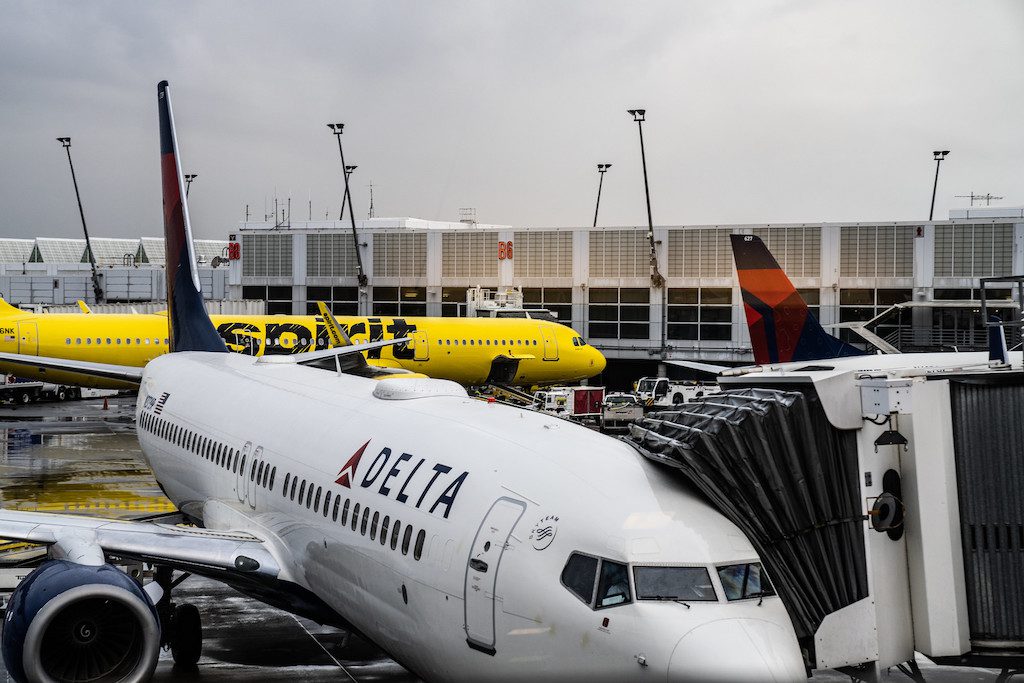Airline Forward Bookings Trend Up With Vaccinated Seniors Eager to Fly

Skift Take
Things are starting to look up, if just a bit, for airlines as the industry heads into the normally busy Easter and spring break travel period.
A broad spectrum of carriers, from British Airways and Lufthansa in Europe to Delta Air Lines and Spirit Airlines in the U.S., have reported an uptick in bookings in recent weeks. In each case, the pick up has correlated directly with either lessened government travel restrictions or declining Covid-19 case numbers.
The pent-up demand is real, very real — apparently especially true among a sector of the population that received its vaccines first, seniors.
“I'm very optimistic,” said Lufthansa Group CEO Carsten Spohr on the outlook during a fourth-quarter earnings call on Thursday. The largest airline group in Europe has received positive overtures from the German government on swapping its mandatory quarantines for testing, and seen a similar moves to ease of restrictions in popular leisure destinations like Greece and Spain. All of this bodes well for spring and summer travel, with the group aiming to fly half of its 2019 passenger capacity by around June.
Elsewhere in Europe, International Airlines Group (IAG) CEO Luis Gallego said British Airways saw flight bookings jump 60 percent compared to the week before on the day that the UK government unveiled its coronavirus reopening plan. Holiday bookings jumped an impressive 200 percent, though both increases are over a low Covid-era base.
In the U.S., the CEOs of both Delta Air Lines and Spirit Airlines told investors at a Raymond James conference this week that they saw bookings take a positive turn around mid-February. Delta executives have previously expressed optimism in an “inflection point” sometime this spring.
The February uptick “portends positive things for the summer, because the exit rate coming out of March now feels a little bit better,” Spirit CEO Ted Christie said at the conference on Wednesday. The airline aims to resume flying at pre-pandemic levels by this summer.
But the turns airlines are seeing may yet be fleeting. Trade group the International Air Transport Association continues to warn of a “tough” start to 2021 for the industry, citing new Covid strains and the many global border restrictions that hamper international travel.
“We think the situation is going to get worse before it improves,” IATA chief economist Brian Pearce said citing January numbers on Tuesday. However, he added that economic data shows high individual savings rates and a desire to travel, which suggests a dramatic uptick in travel when restrictions are lessened.
One group that may be among the first to jump on a plane are grandparents. New credit card data from Bank of America shows an uptick in airline bookings among older Americans, especially “traditionalists” or those born before 1946, at the end of February. Bookings increased for all age groups but traditionalists rose the fastest suggesting that a growing number of over-65 year olds are getting Covid vaccines and want to travel, potentially to make up for missed family visits during the past year.
However, even if traditionalists get on planes en mass, the group only accounted for 6.9 percent of the U.S. population — or about 22.6 million people — in 2019, Census data shows. An increase in bookings by baby boomers, generation xers and millennials — even if more sedate than that of traditionalists — portends a stronger recovery on the simple fact that these generations include millions more Americans than traditionalists.
In addition, since airlines dropped most change fees, travelers can buy a ticket today and change or cancel it before they travel without fear of financial penalties.
Most data points suggest the recovery in at least domestic air travel is moving in the right direction. Transportation Security Administration (TSA) screening data has surpassed a million people on three separate days during both of the past two weeks. And trade group Airlines for America (A4A) data shows a nearly continuous — if sedate — rise in domestic air travelers since early February.
“We believe demand for summer air travel will be strong, with most of those travelers heading to beaches, national parks and near U.S. international markets,” wrote Cowen analyst Helane Becker in a report Tuesday.
But even if spring travel turns out stronger than airlines hoped, the industry continues to face a long road to recovery. Most expect a recovery to pre-pandemic levels of travel to take until at least 2014. And for this year, A4A's "optimistic" forecast for U.S. domestic passenger numbers is still down 40 percent compared to 2019 after a 60 percent fall in 2020. International travel is expected to take longer to recover.




